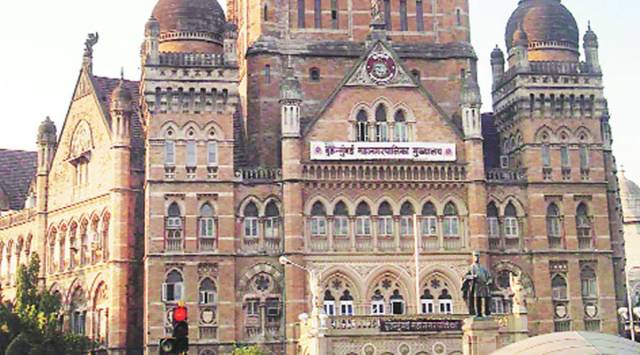Panel seeks penal action against contractors, establishments that fail to comply with norms
The seven-member special committee constituted to formulate measures for mitigating dust and air pollution in Mumbai has submitted its report to the BMC on March 23. Based on the recommendations made in the report, the civic body is set to roll out standard operating procedures (SOPs) from April 1 for commercial and industrial sectors operating. […]
 BMC commissioner and state-appointed administrator, Iqbal Singh Chahal, had directed formation of the special committee on March 12. (Express Photo)
BMC commissioner and state-appointed administrator, Iqbal Singh Chahal, had directed formation of the special committee on March 12. (Express Photo) The seven-member special committee constituted to formulate measures for mitigating dust and air pollution in Mumbai has submitted its report to the BMC on March 23. Based on the recommendations made in the report, the civic body is set to roll out standard operating procedures (SOPs) from April 1 for commercial and industrial sectors operating.
The report (accessed by The Indian Express) has recommended that contractors and commercial establishments that fail to comply with the SOPs may face penal action from the BMC. This is the first time the BMC has decided to take action against establishments for causing air pollution.
Between October 2022 and March 19, 2023, Mumbai had witnessed bad air quality on most days. Also, data released by SAFAR showed that of the 92 days between November 1, 2022, and January 31, 2023, Mumbai recorded poor and very poor AQI (air quality index) for 66 days. However, following the unseasonal rain earlier this month, the city recorded good and satisfactory air quality for the first time in 2023 on March 20. Till Tuesday (March 28), Mumbai has been experiencing good AQI.
BMC commissioner and state-appointed administrator, Iqbal Singh Chahal, had directed formation of the special committee on March 12.
A senior BMC official said, “We have made efforts to identify the causes affecting the air quality. Now, a set of guidelines will be circulated to all BMC departments and other government agencies like MHADA and MSRDC, among others, operating in and around Mumbai.”
The report has identified construction activities for real estate works and infrastructure projects; open burning of solid waste; unclean fuel used in hotels, eateries, bakeries and households; smoke emitted from crematoriums; vehicular emissions and displaced road dust as primary contributors behind the worsening air quality.
Officials said that for construction works, the report has recommended a slew of directives, including setting up of metal sheets – with a height of at least 20 m – around the periphery of project sites. It also stated that before carrying out any excavation or demolition work, the soil strata needs to be watered and during excavation, water fogging needs to be carried out to avoid displacement of dust. The report recommended a complete ban on dumping construction debris on roads and public spaces. It said that activities like mixing of cement and concrete, drilling and sawing of plaster and raw materials should be carried out in enclosed areas and conduction debris should be transported through vehicles only after being covered with tarpaulin sheets.
It added said that entry and exit points to construction premises should be kept clean and water should be sprinkled regularly at the site.
“On failure of compliance to the guidelines, a warning letter to be issued to the project proponent for rectification within one week. Pursuant to the letter if the proponent fails to comply, then penal action as per Mumbai Municipal Corporation Act and Maharashtra Region Town Planning Act, including issuing of stop work notice will be initiated,” the report said.
Officials said the same set of rules is being implemented to concretise roads and construct bridges and public infrastructure works.
The report recommended that it will mandate setting up of metal barricades as well as fogging and sprinkling of water, for trenching works as well. It added that debris from sites should be removed within 24 hours and in case of failure to comply with the norms, the BMC will take legal action.
Also, the report suggested the setting up a ready mix concrete plant or casting yard at sites, for which the project proponent would need to get a no objection certificate from the state pollution board.
The report recommends identifying hotels, eateries and restaurants that use unclean fuel, following which ward-level task forces will be deployed to monitor their activities. Action is suggested against establishments that fail to comply with the norms.
Maintaining that crematoriums should avoid conventional wooden pyres, the report also said that an air quality monitoring system will be set up at the crematoriums. Other measures recommended included formation of a ward-level task force to monitor construction and waste burning activities and washing of roads with higher vehicular density regularly.







